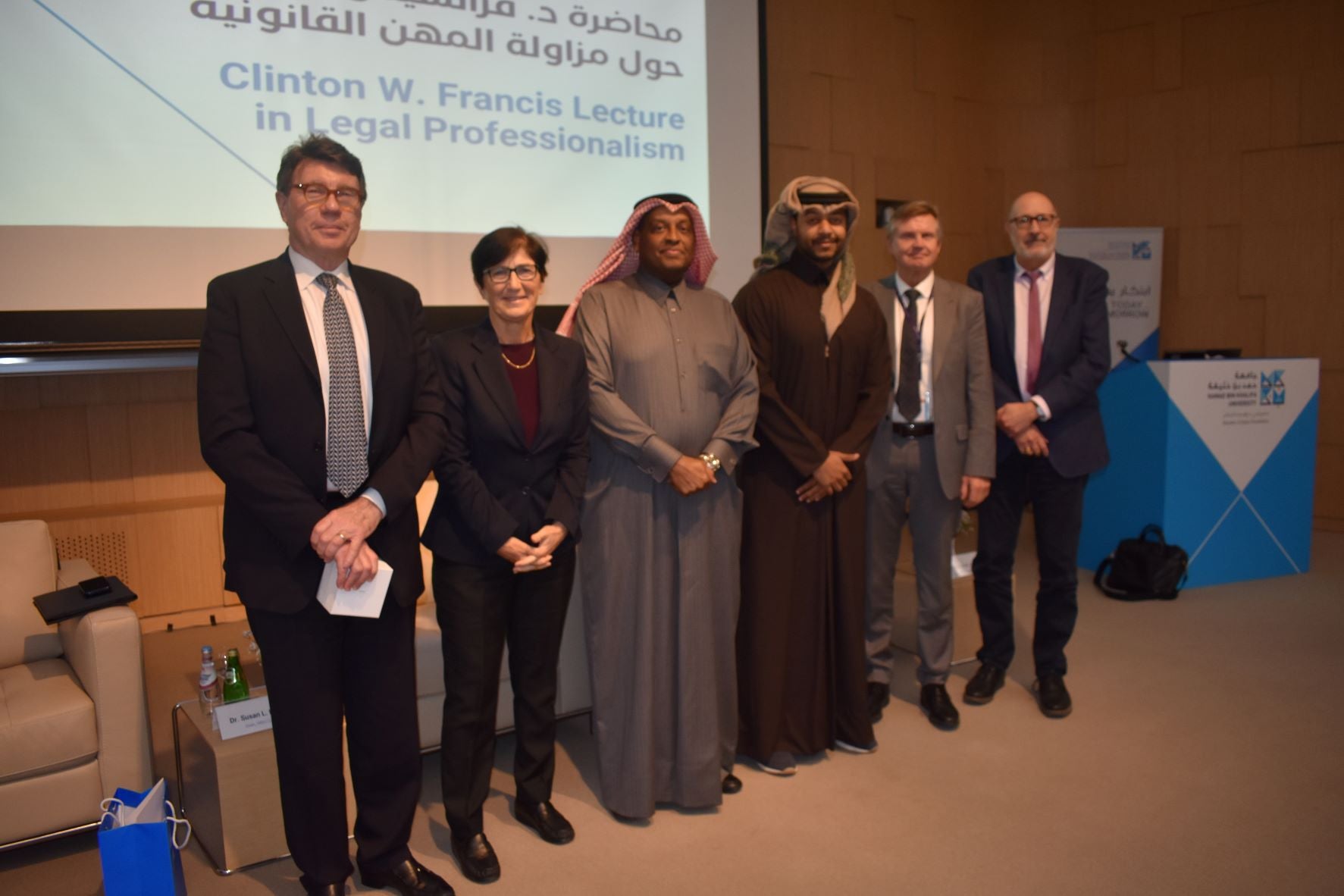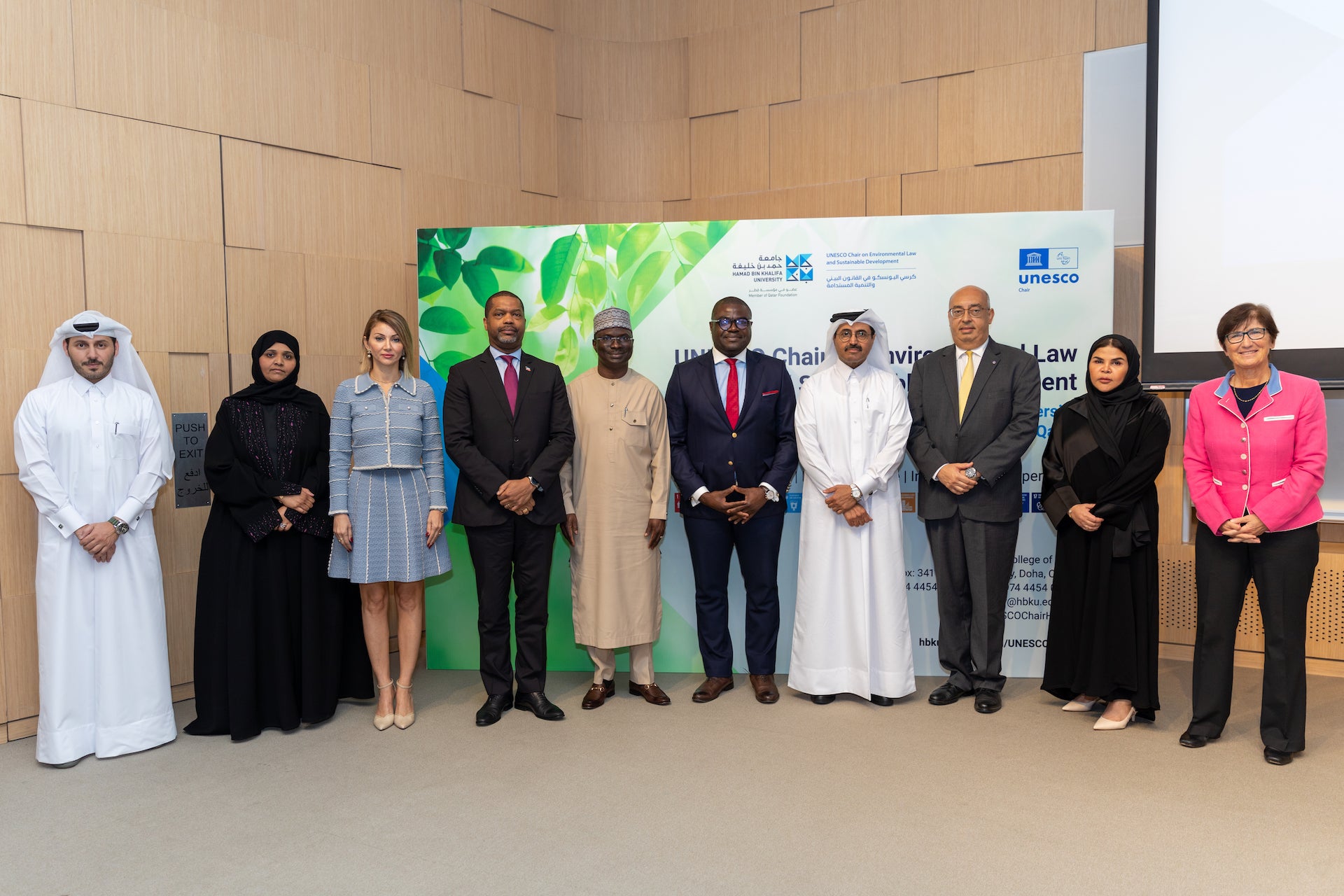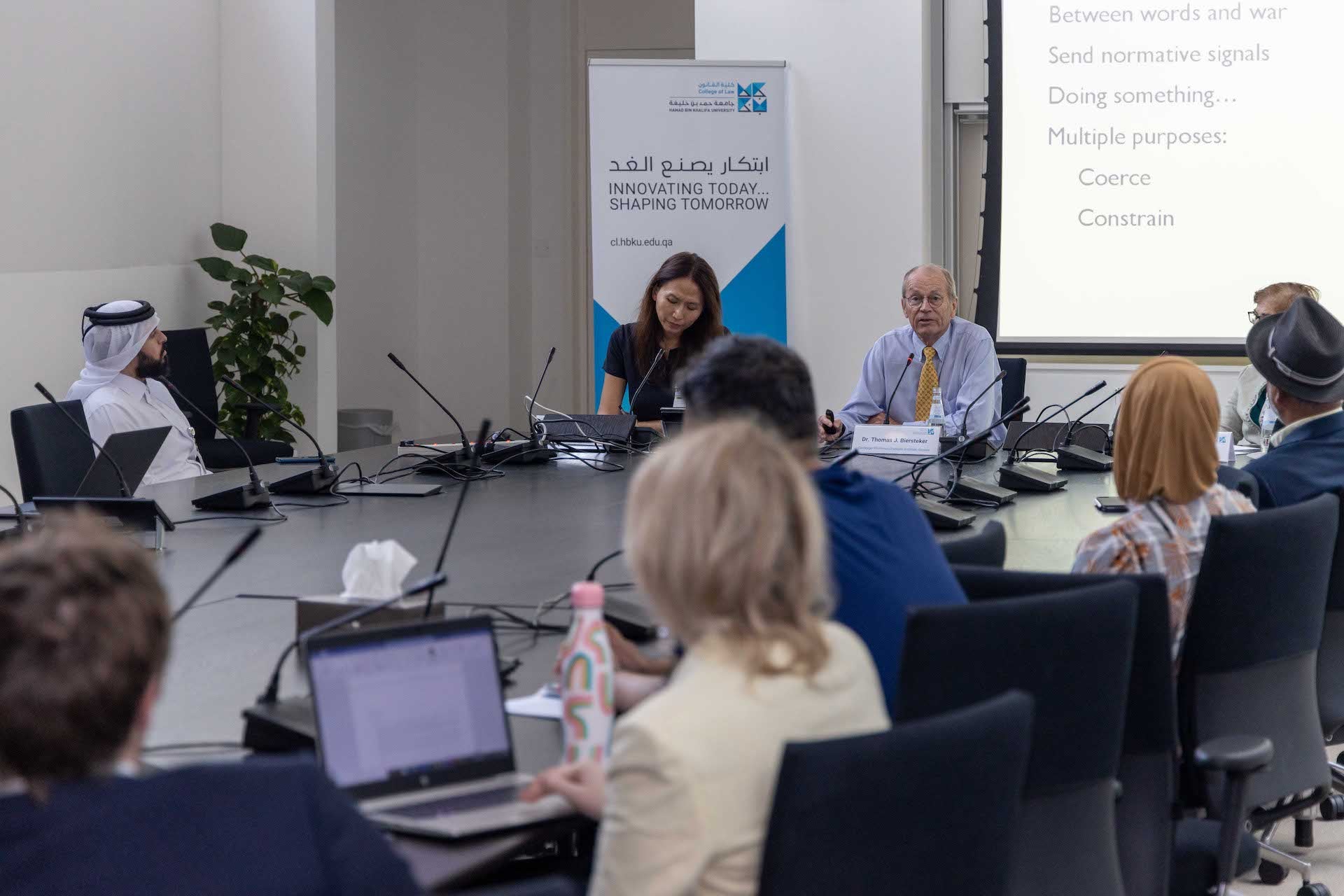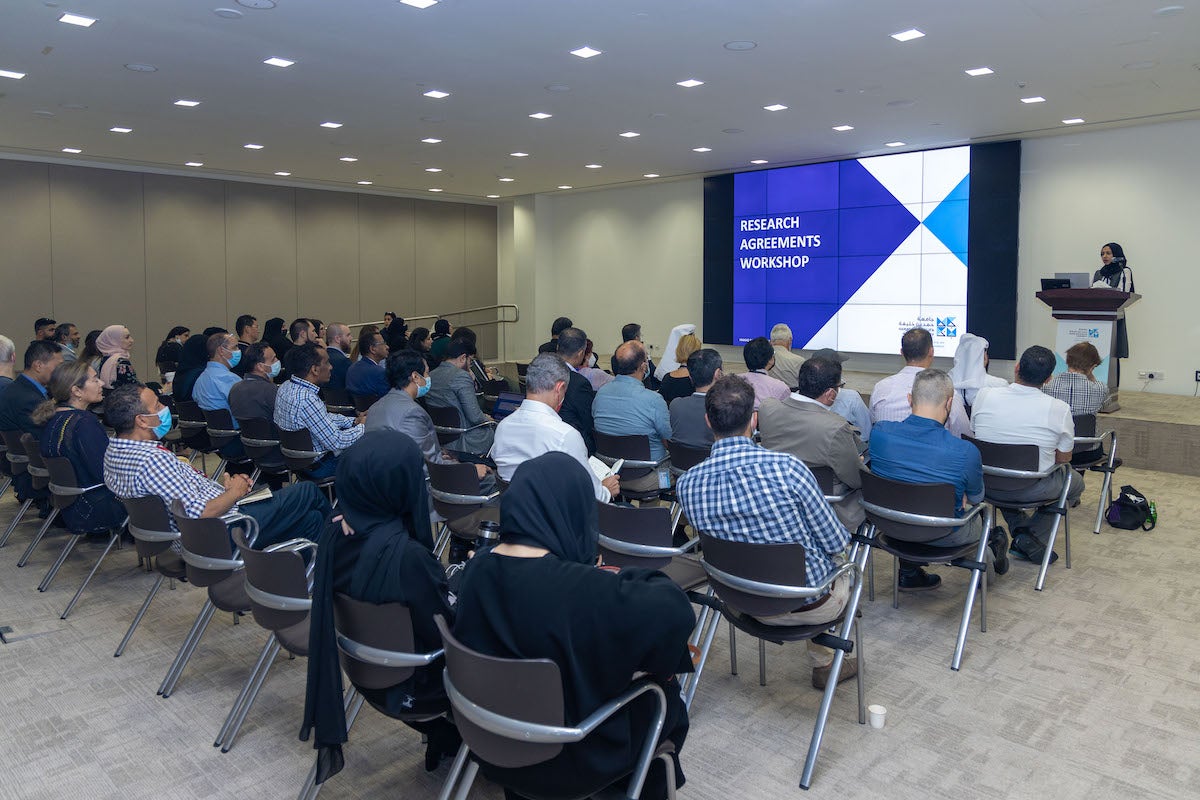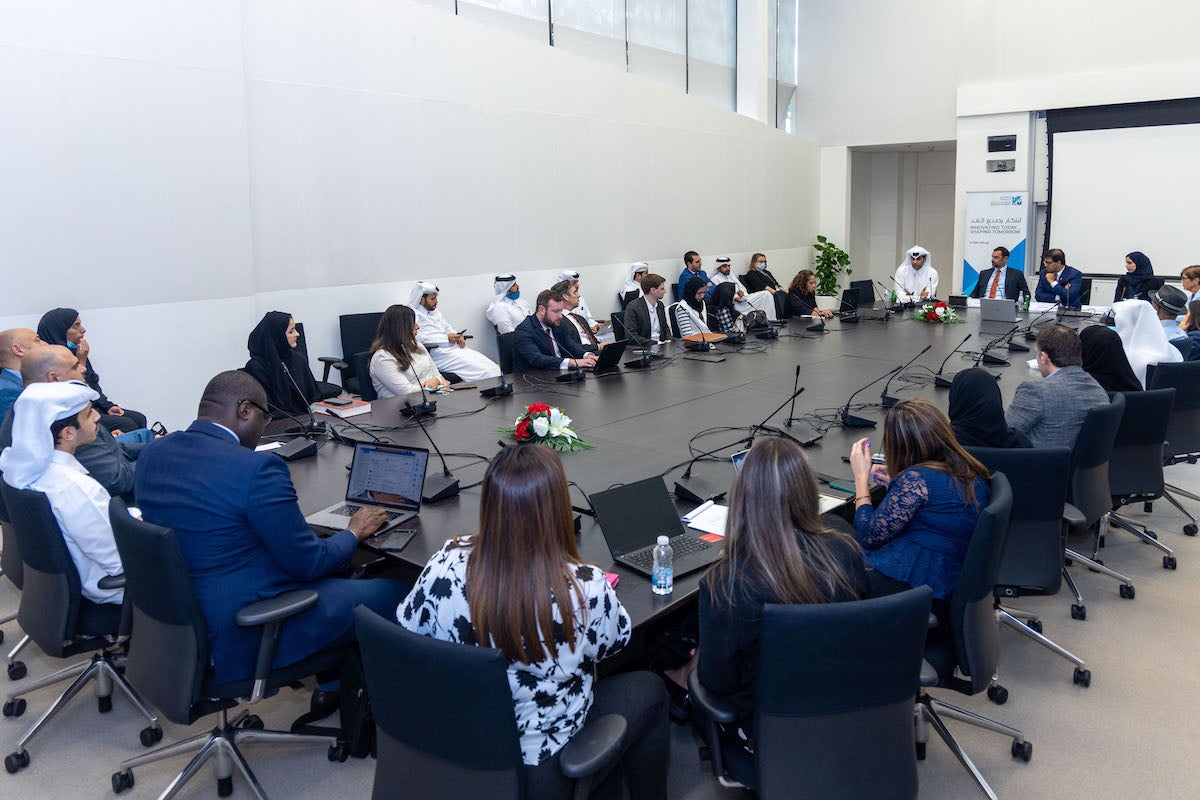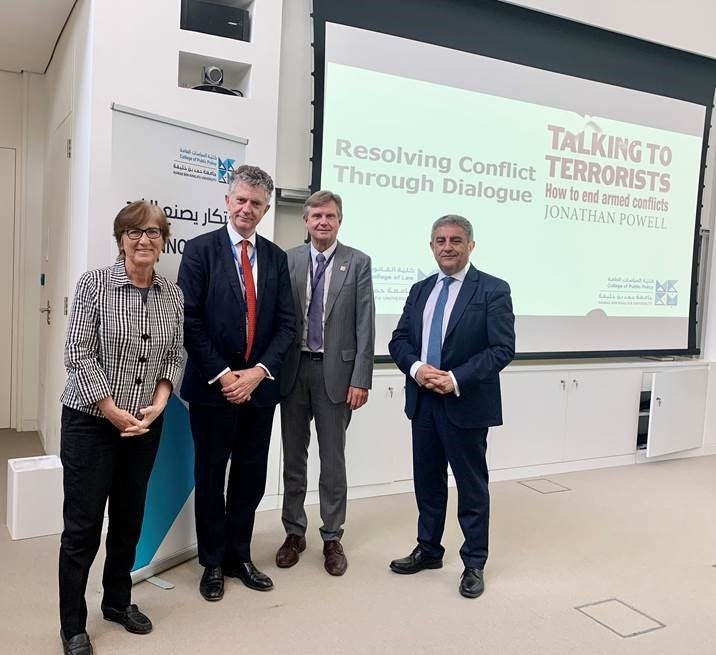Dr. Georgios Dimitropoulos, Associate Professor of Law and Associate Dean for Academic Affairs

Dr. Georgios Dimitropoulos received the Qatar Law Forum’s ‘Outstanding Law Professor of the Year’ Award in 2021 for his role in launching the Doctor of Juridical Science (SJD) - the most advanced degree at HBKU’s College of Law. He sat down with us to reflect on HBKU’s contributions to Qatar’s legal research culture, especially from his perspective as the SJD program director and a scholar of international economic law and dispute settlement.
What brought you to Qatar and HBKU?
If I were to highlight one factor, it would be Education City and its impressive ecosystem. It’s unprecedented to work in the proximity of top universities, and to be part of and engage in a fantastic and dynamic educational environment.
Before joining HBKU, I was a senior research fellow at the Max Planck Institute in Luxembourg. The prospect of joining HBKU - and the College of Law - presented a huge opportunity to be part of building something new. It was also the institution’s dynamism that mattered in my decision to move.
Tell us about your involvement in setting up the SJD
In 2018, Susan Karamanian had just been appointed as the new dean. The Juris Doctor (JD) program was in place, the first in the MENA region, and one of few outside the United States (US). The Office of the Provost engaged us about new programs and Dean Karamanian accordingly gave a mandate to the faculty, including Professors Damilola Olawuyi and Ilias Bantekas. We set out to build on the tradition that had been established of following the US approach, in which the JD and Master of Laws (LLM) lead into research doctoral programs.
In developing our two LLM programs and the SJD degree, we conducted extensive comparative research before selecting aspects we regarded as the best from different systems. We launched the LLM programs in 2019 with the idea of launching the SJD a year later to enable the natural progression from JD, to LLM, and then the SJD.
Once we received approval from the Ministry of Education, we went to work in drafting the program, policies, and structure, and it came naturally for me to become the program director. The pandemic then broke out, but we were finally able to launch the program in June 2021.
We currently have three outstanding SJD students. The students have been part of three different JD cohorts – a “dream team” of the JD program. Two students of our current cohort work on the impact of new technologies on law, policy-making and society – one in the area of healthcare, and the other in the area of trade in services; another student works on the impact of Shari’a on international construction law. I expect all three dissertations to contribute to the significant advancement of their fields in this part of the world and beyond.
Why should a student pursue the SJD in the current climate?
It’s unique in the way all HBKU programs are. But three aspects stand out. First, we’re developing very high-end research in law with an interdisciplinary focus in a part of the world that doesn’t have an established interdisciplinary tradition in legal education.
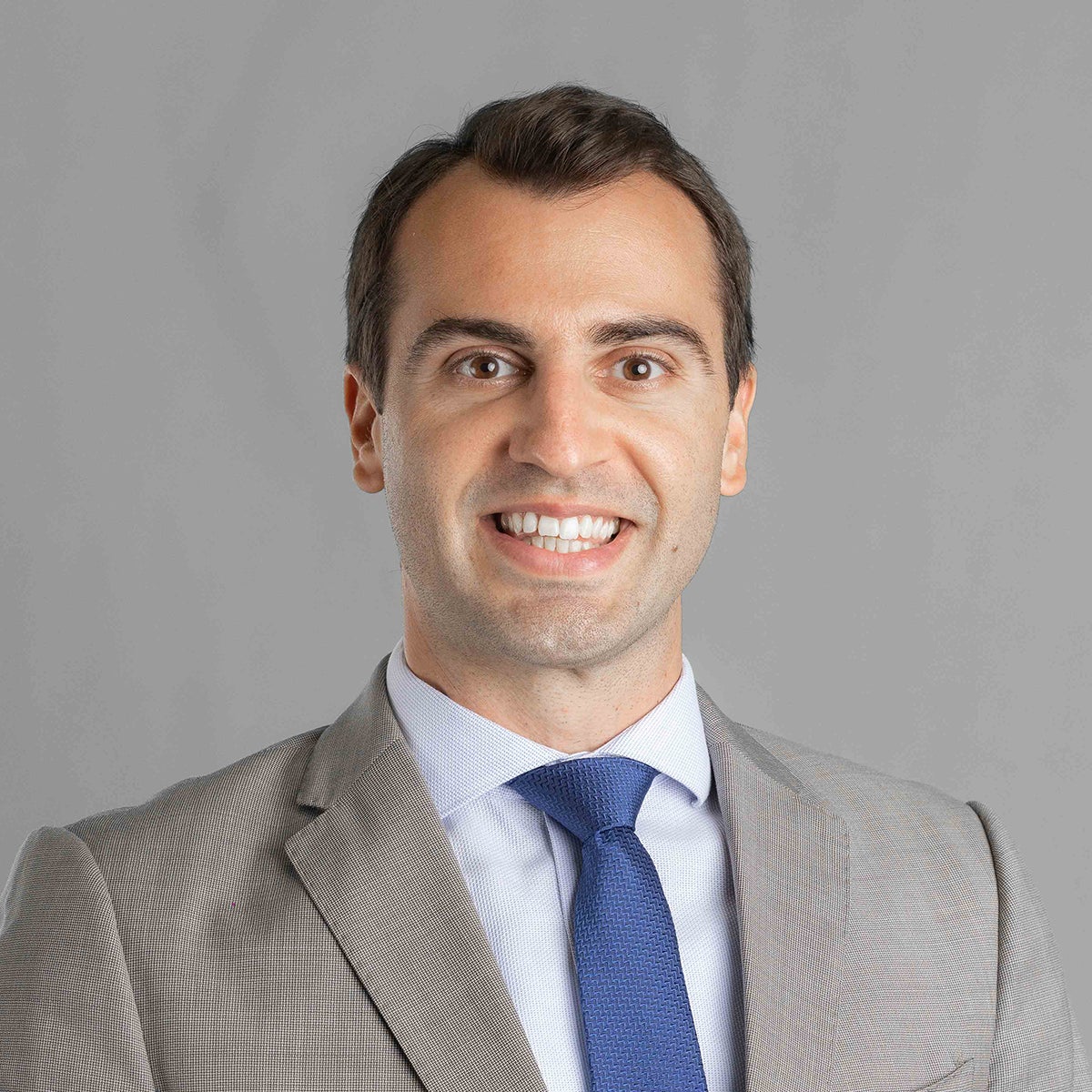 The program is for students aspiring to conduct highly analytical, interdisciplinary, and comparative research on a specific topic of their interest that addresses important and relevant issues. Obviously, this is a very research and academic-oriented program, but we’re also interested in the practical and policy-related aspects as well as developing the students’ focus on professional responsibility.
The program is for students aspiring to conduct highly analytical, interdisciplinary, and comparative research on a specific topic of their interest that addresses important and relevant issues. Obviously, this is a very research and academic-oriented program, but we’re also interested in the practical and policy-related aspects as well as developing the students’ focus on professional responsibility.
The curriculum follows best practices yet goes beyond that. The first semester offers a course on Advanced Research Methods in Law, which I teach with my colleague, Aisha Al Naama who is a lecturer in the College, and the second semester, Advanced Global Legal Ethics. Both build on our LLM courses.
We teach students how to conduct outstanding legal research. We study the most cited legal articles, for instance. You rarely find a legal methodology course in other doctoral programs, making this an innovative aspect of our SJD. While this may sound peculiar, it’s also why lawyers don’t necessarily have a very rigorous legal methodology. We’re trying to remedy that for our students.
Second is the peer-led SJD Colloquium. Students design the forum as they see fit. They may invite speakers or discuss their dissertations and important scholarship. This creates an environment minus the pressures of the classroom, where they can receive feedback on their research as well as obtain guidance on professional development.
Third, we leverage the Education City ecosystem and multiversity as much as we can. The doctoral supervisory committee gives SJD students the chance to choose a supervisor from within Education City.
What kind of students do you want to attract?
We mostly aim to attract HBKU JD or LLM graduates, so we can be confident that the students have the foundational courses and thorough, interdisciplinary legal education needed to finish the program in three years, which is quite rigorous. Students must have a strong interest in academic engagement with a topic of their choice.
HBKU is a research-oriented university and our obligation to the academic community is always in our minds. We want students who will be in a position to publish their research in the best publication outlets, in influential journals, books, and so on, to make original and substantial contributions to legal scholarship.
What advice would you give a student contemplating a legal research career?
Start by identifying the area of law or issue you're very passionate about. Then reflect on whether you’re ready to sacrifice and dedicate a big chunk of your life to studying this area of the law. Your research will be with you when you’re asleep or awake, at work, at university, on weekends or holidays. A research degree is for someone fully dedicated to the advancement and development of a legal issue they find important.
Do you think it's important for students to tie their studies into their work?
There’s always scope for students to connect their research to their professional role. Practical and policy-related aspects are important, especially as HBKU and the college (given its historical development), are interdisciplinary. Our starting point and my own vision, though, is for SJD students to engage with the higher ideas behind practical problems and with intellectually demanding issues.
Your latest book “International Commercial Courts” was recently published by Cambridge University Press. Are there other career highlights you’d like to share?
During the pandemic, I completed a second doctoral degree at Yale Law School, where I also earned my LLM. My first PhD in law was from the University of Heidelberg, Germany.
When COVID-19 hit, much like everybody, my family and I were unsettled. I still vividly recall the day HBKU briefed the faculty on moving our courses online. It was the start of a new lifestyle.
Those first three weeks were difficult and taxing on all of us. I looked inside myself for how to cope and was able to turn to my research. My schedule was to wake up very early, work on my dissertation for six hours, then begin with academic and personal responsibilities. All in all, research was my go-to survival strategy.
Related News
